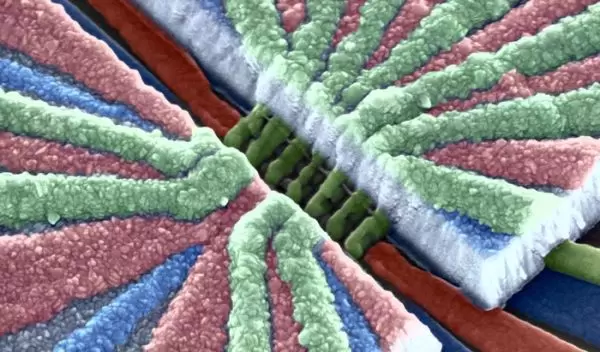
Can silicon technology replace superconductors?
Physicists based at Princeton University working on a U.S. National Science Foundation grant have been exploring the use of silicon-based technologies in quantum computing, particularly as quantum bits, sometimes referred to as qubits. The research promises to accelerate the use of silicon technology as a viable alternative to quantum computing technologies like superconductors or trapped ions.
"NSF’s Materials Research Science and Engineering Centers program funds cutting-edge infrastructure such as Princeton's Imaging and Analysis Center, which was crucial to the success of this study," said Miriam Deutsch, a program director in NSF’s Division of Materials Research.
A qubit is the quantum version of a computer bit, the smallest unit of data in a computer. Qubits are encoded with binary values, but unlike a conventional bit, a qubit uses the concepts of quantum mechanics to perform tasks.
"In a qubit you can encode zeros and ones, but you can also have superpositions of these zeros and ones," said Adam Mills, lead author of the study.
Superposition means that each qubit can simultaneously have a value of one and zero. Superposition is fundamental to quantum mechanics and allows qubits to perform almost unimaginable operations.
The physicists achieved an unprecedented level of fidelity using a two-qubit silicon quantum device with results that rival competing technologies. Silicon spin qubits are composed of single electrons and measure in nanometers, answering the question of scalability.
"Our devices are just about 100 nanometers across, while a conventional superconducting qubit is more like 300 microns across, so if you want to make many on a chip, it's going to be difficult using a superconducting approach,” corresponding author Jason Petta said. “This technology is on a strongly increasing slope, and I think it's just a matter of time before it overtakes the superconducting systems."
